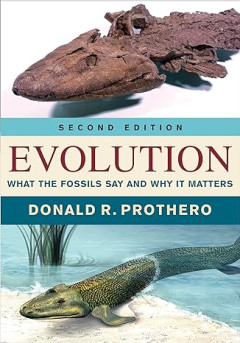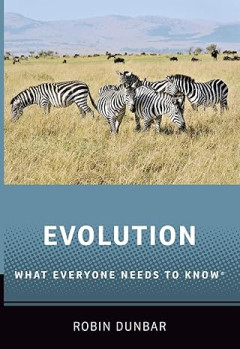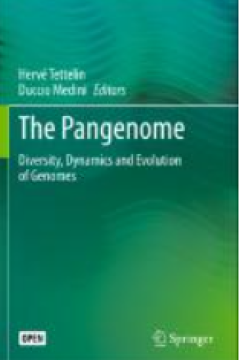Ditapis dengan
E-book Reign of the Beast : The Atheist World of W. D. Saull and his Museum o…
So warned the appalled editor of theChurch of England Magazine in 1840, after leaving a talk in a socialist hall by the London wine merchant and museum owner William Devonshire Saull (1783–1855). It was a reminder that the new science of the earth was not only startling and fashionable, but dangerous in dirty hands. Dissidents were harnessing geological armaments for use against t…
- Edisi
- -
- ISBN/ISSN
- 9781805112419
- Deskripsi Fisik
- 678 hlm
- Judul Seri
- -
- No. Panggil
- 576.8 DES r
E-book Quaternary Vegetation Dynamics : The African Pollen Database
Palaeoecology of Africa(PoA) of which this is the 35th volume, is a series traditionally focusingon multi-disciplinary studies on palaeoenvironments of Africa, especially on more recent parts ofgeological time like the Neogene and Quaternary. The early PoA volumes reveal the developmenthistory of these palaeoscience aspects in Africa. Thanks to the pioneering and visionary effortsof Eduard Mein…
- Edisi
- -
- ISBN/ISSN
- 9781003162766
- Deskripsi Fisik
- 439 hlm
- Judul Seri
- -
- No. Panggil
- 576.8 SCO q

E-book Evolution: What the Fossils Say and Why It Matters
Donald R. Prothero’s Evolution is an entertaining and rigorous history of the transitional forms and series found in the fossil record. Its engaging narrative of scientific discovery and well-grounded analysis has led to the book’s widespread adoption in courses that teach the nature and value of fossil evidence for evolution. Evolution tackles systematics and cladistics, rock dating, neo-D…
- Edisi
- -
- ISBN/ISSN
- 9780231180641
- Deskripsi Fisik
- 455 halaman, ilus.
- Judul Seri
- -
- No. Panggil
- 576.8 PRO e
E-book Animal Communication Theory: Information and Influence
The explanation of animal communication by means of concepts like information, meaning and reference is one of the central foundational issues in animal behaviour studies. This book explores these issues, revolving around questions such as: what is the nature of information? What theoretical roles does information play in animal communication studies? Is it justified to employ these concepts in…
- Edisi
- -
- ISBN/ISSN
- 9781604130904
- Deskripsi Fisik
- 121 halaman, ilus.
- Judul Seri
- -
- No. Panggil
- 591.3 STE a

E-book Evolution: What Everyone Needs to Know®
Evolution is one of the most important processes in life. It not only explains the detailed history of life on earth, but its scope also extends into many aspects of our own contemporary behavior-who we are and how we got to be here, our psychology, our cultures-and greatly impacts modern advancements in medicine and conservation biology. Perhaps its most important claim for science is its abil…
- Edisi
- -
- ISBN/ISSN
- 9780190922887
- Deskripsi Fisik
- 113 halaman
- Judul Seri
- -
- No. Panggil
- 576.8 DUN b

E-book The Pangenome : Diversity, Dynamics and Evolution of Genomes
This open access book offers the first comprehensive account of the pan-genome concept and its manifold implications. The realization that the genetic repertoire of a biological species always encompasses more than the genome of each individual is one of the earliest examples of big data in biology that opened biology to the unbounded. The study of genetic variation observed within a species ch…
- Edisi
- -
- ISBN/ISSN
- 9783030382810
- Deskripsi Fisik
- 311 hlm
- Judul Seri
- -
- No. Panggil
- 576.8 HER t
E-book Marking Time : Romanticism and Evolution
Although Victorian studies have long explored the seismic impact of On the Origin of Species (1859) on nineteenth-century culture, Charles Darwin’s text did not have an immaculate conception. The product of post-Enlightenment thought, Origin exerted considerable influence on post-1859 debates about the order of life and being well into the twentieth and twenty-first ce…
- Edisi
- -
- ISBN/ISSN
- 9781442644304
- Deskripsi Fisik
- 333 hlm
- Judul Seri
- -
- No. Panggil
- 576.8 FAF m
E-book On the Origin of Species
I will here give a brief sketch of the progress of opinion on the Origin of Species. Until recently the great majority of naturalists believed that species were immutable productions, and had been separately created. This view has been ably maintained by many authors. Some few naturalists, on the other hand, have believed that species undergo modification, and that the existing forms of life ar…
- Edisi
- 6th. ed
- ISBN/ISSN
- 9781547071302
- Deskripsi Fisik
- 506 hlm
- Judul Seri
- -
- No. Panggil
- 576.8 DAR o
E-book Patent Landscape Reoprt on Animal Genetic Resources
This patent landscape report provides an overview of international patent activity for animal genetic resources, in particular those relating to food and agriculture. The empirical analysis of patent activity for animal genetic resources for food and agriculture has received remarkably little attention in the scientific literature. Indeed, in conducting the present research we found no example …
- Edisi
- -
- ISBN/ISSN
- -
- Deskripsi Fisik
- 178 hlm
- Judul Seri
- -
- No. Panggil
- 591.3 OLD p
E-book The Princeton Guide to Evolution
For more than 150 years, since the publication of On the Origin of Species, biologists have focused on understanding the evolutionary chronicle of diversification and extinction, and the underlying evolutionary processes that have produced it. Although progress in evolutionary biology has been steady since Darwin’s time, developments in the last 20 years have ushered in a golden era of evolut…
- Edisi
- -
- ISBN/ISSN
- 9780691149776
- Deskripsi Fisik
- 877 hlm
- Judul Seri
- -
- No. Panggil
- 576.8 AGR t
E-book Cooperative Evolution : Reclaiming Darwin's Vision
f you choose not to read this and move straight on to In Homage to Darwin, we will not be offended. The story, however, of how two scientific dinosaurs came to cooperate in writing about their shared world view, gleaned from a combined total of more than 150 years of independent study of biology, needs, we feel, some explanation.Any two biologists can b…
- Edisi
- -
- ISBN/ISSN
- 9781760464295
- Deskripsi Fisik
- 251 hlm
- Judul Seri
- -
- No. Panggil
- 576.8 BRY c
 Karya Umum
Karya Umum  Filsafat
Filsafat  Agama
Agama  Ilmu-ilmu Sosial
Ilmu-ilmu Sosial  Bahasa
Bahasa  Ilmu-ilmu Murni
Ilmu-ilmu Murni  Ilmu-ilmu Terapan
Ilmu-ilmu Terapan  Kesenian, Hiburan, dan Olahraga
Kesenian, Hiburan, dan Olahraga  Kesusastraan
Kesusastraan  Geografi dan Sejarah
Geografi dan Sejarah